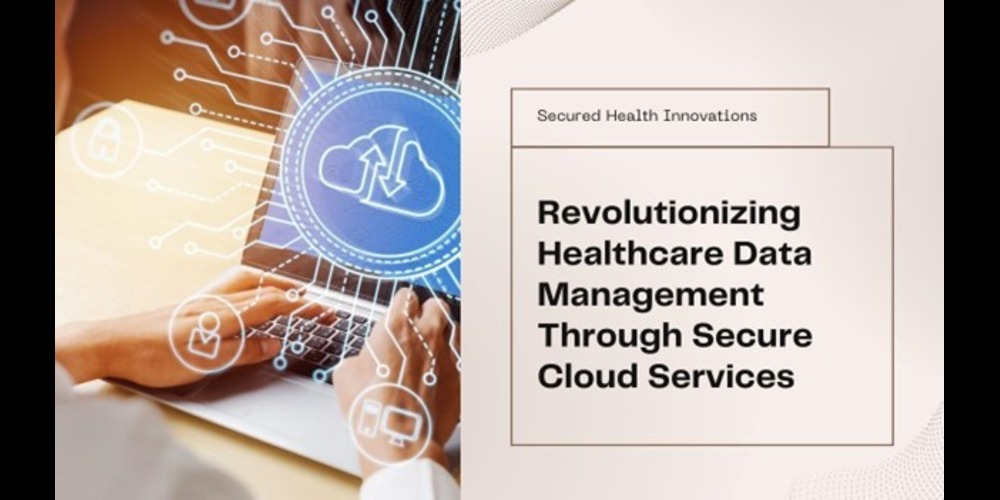Innovations in Secure Cloud Services Transforming Healthcare Data Management

In an era where healthcare is increasingly intertwined with digital technology, adopting cloud services is revolutionizing how patient data is managed, telehealth services are delivered, and operational efficiencies are achieved. However, this digital transformation has challenges, particularly concerning the stringent regulations and security concerns associated with handling sensitive personal health information (PHI). Besides addressing these issues, Prajakta Sudhir Samant’s insights and innovations in secure cloud services are helping to navigate the complex landscape of healthcare data management.
The Challenge of Compliance and Security in Healthcare Cloud Services
The healthcare industry faces unique challenges in adopting cloud computing due to stringent regulations like the Health Insurance Portability and Accountability Act (HIPAA) in the United States and the General Data Protection Regulation (GDPR) in the European Union. These regulations mandate strict guidelines for handling personal health information (PHI), requiring healthcare organizations to prioritize data security and compliance. Adopting cloud services offers a pathway to more efficient data management and telehealth services, but it also presents significant risks if not properly managed. Hence the innovations came into the picture.
Innovations in Secure Cloud Services
A key innovation in healthcare cloud services is the development of specialized secure features, including advanced encryption, comprehensive access management, continuous security assessments, sophisticated threat detection, and robust data backup and disaster recovery. Platforms like Azure offer a HIPAA-compliant environment, featuring tools such as Azure Information Protection and Azure Active Directory to safeguard sensitive health data, ensuring protection across jurisdictions and systems.
The Role of AI and Automation in Enhancing Security
AI and automation are crucial in enhancing data security and operational efficiency in healthcare cloud services. AI-powered systems can analyze vast healthcare data in real-time, identifying potential security threats and vulnerabilities. This proactive approach to threat detection significantly reduces the risk of data breaches, which are not only costly but can also damage the reputation and trust of healthcare organizations. The integration of AI helps healthcare providers not only manage their data more effectively but also gain actionable insights that can lead to better patient outcomes.
Shared Responsibility Model in Cloud Computing
Moreover, the shared responsibility model in cloud computing clarifies the division of security responsibilities between cloud service providers (CSPs) and healthcare organizations. CSPs are generally responsible for securing the cloud infrastructure, while healthcare organizations must secure their applications, data, and access management. This model helps healthcare organizations allocate resources effectively and ensures a comprehensive security strategy covering all data protection aspects.
Future Trends: Homomorphic Encryption and Blockchain
Looking ahead, emerging technologies such as homomorphic encryption and blockchain are poised to further revolutionize healthcare data security. Homomorphic encryption allows computations to be performed on encrypted data without decrypting it, ensuring that sensitive information remains secure throughout the process. This technology is particularly useful in scenarios where data privacy is paramount, such as genomic data analysis. Similarly, blockchain technology offers a transparent and secure way to manage PHI, enabling secure data sharing among healthcare providers and researchers. Projects like MedRec, a decentralized record management system using blockchain, demonstrate the potential for secure and efficient data management in healthcare.
The Future of Healthcare Cloud Computing
The adoption of these technologies is not just about compliance and security; it also aligns with the broader goals of the healthcare industry. The global healthcare cloud computing market is projected to reach $64.7 billion by 2025, driven by the increasing adoption of electronic health records (EHRs) and the need for cost-effective, interoperable solutions. These innovations are becoming essential. The integration of AI, big data analytics, and secure cloud services enables healthcare providers to offer high-quality care, streamline operations, and reduce costs.
In conclusion, the advancements in secure cloud services, AI, and emerging technologies are transforming the healthcare industry. By addressing the unique challenges of data security and compliance, these innovations are enabling healthcare organizations to leverage cloud computing’s full potential. Prajakta Sudhir Samant’s insights highlight the critical role of technology in shaping the future of healthcare, ensuring that patient data is not only secure but also used to its fullest potential to improve patient care and operational efficiency. As we move forward, the continuous evolution of these technologies will be crucial in maintaining the delicate balance between innovation and compliance in healthcare.
Read More From Techbullion And Businesnewswire.com





